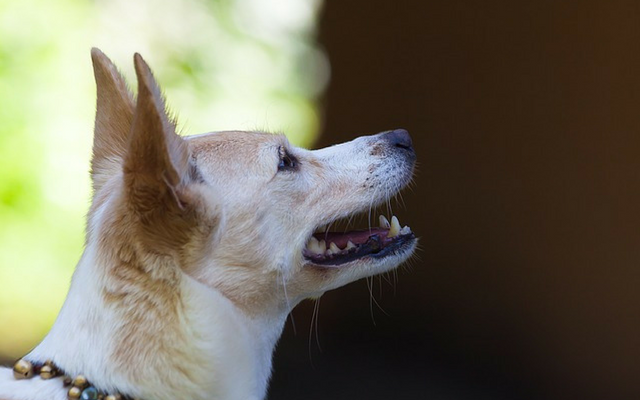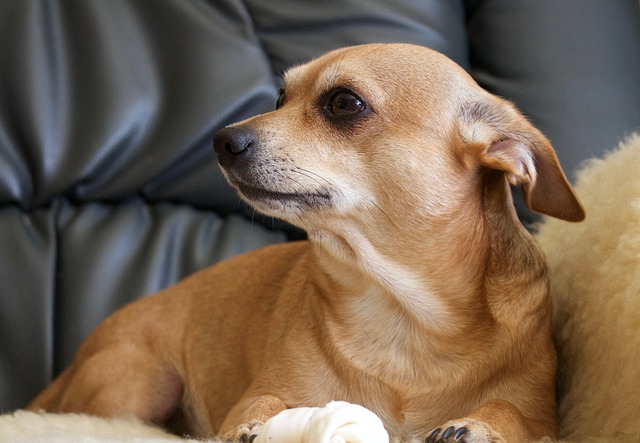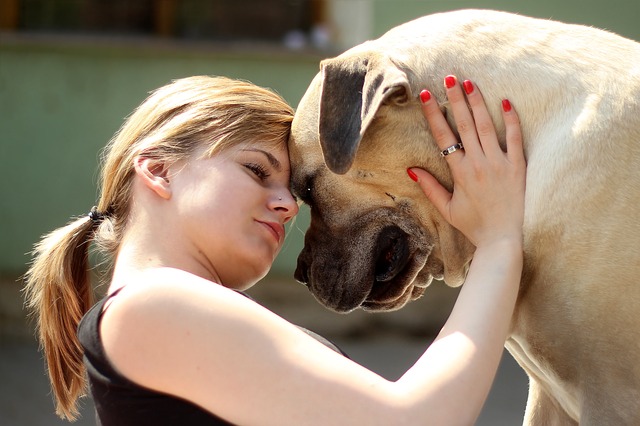Fluffy, Blackie, Fido, Pooty—not every dog name is a winner. When you adopt a new dog into your home, they most likely already have a name given to them either by previous owners or the shelter. You’ve agreed to do what’s best for your new pup for the rest of their life, but does that mean keeping a name you don’t like?
Many people worry that changing a dog’s name will confuse them or cause emotional distress. The situation will always depend on the individual dog, but most new dog owners are relieved to know dogs usually don’t mind if their names are changed.

What’s In a Name
For most people, their name is more than what they call themselves. It’s about developing their sense of self and personal identification. Some people try to live up to their name, and studies show names also play a factor in child behavior and adult self-esteem. Names are a big deal for people, so most pet owners assume the same goes for their dogs. The reality, however, is that dogs don’t think about their names the same way people do. Names help aide communication between them and their humans, but they don’t affect the way they think about themselves.
Casey Lomonaco with Rewarding Behaviors Dog Training says,
“Dogs don’t really see their names as defining their identities. Mokie is over six years old now, and if I wanted to change her name tomorrow, I could and she wouldn’t care. A new name, to Mokie, would be just as good as her current name if I taught her that responding to ‘Dolly’ (or whatever) could earn her reinforcement.”

Instead of perceiving their name as a sense of self, dogs associate names with their cue to start paying attention. A well-trained dog will look toward their owner every time they hear their name because that’s what they’re taught to do. They learn to recognize sounds and associate them with behaviors and responses. Just as the word “sit” means something to the dog, their name means something, too.
Even if a dog has known its old name for years, they won’t be insulted if you decide you don’t like it. The don’t relate the name “Teeny” to being a jab at their small size, and they won’t care that the name “Killer” makes them sound mean. As long as they’re properly trained to recognize their new name, they won’t care what you call them.
A Fresh Start

In some cases, changing a dog’s name is actually in their best interest. If the dog came from a particularly unpleasant background or abusive home, they might associate their name with negative experiences. A previous owner could have shouted their name right before they hit them, and now the dog thinks of their name as a precursor to pain. Even if they weren’t abused, many dogs learn their names as signs they’re in trouble. They steal food off the counter and their owner yells, “Buster, no!” They get too excited when playing indoors, and they hear, “Buster, knock it off!” If their name is only ever used in negative situations, that’s all they’ll ever think it means.
Entering a new home should be a clean slate for every rescue dog. Regardless of where they’re coming from, being adopted is their chance to start over with a new family. Their old name will always represent the past, but a new name can help them look forward to a better future.
How to Change a Dog’s Name

When you’ve officially decided you’ve met “the one,” the first thing to do after signing the adoption papers is consider their name. If you’re not a fan, talk to the shelter staff or person you’re adopting from about the dog’s history. Most shelter dogs are assigned new names the minute they walk through the door. There’s a good chance your dog has only had their name a few days. Shelter staff can also give you insight into their background and tell you what their previous life was like.
If you’ve collected as much background information as you can and decide you’ll both be happier with a new name, it’s important to make a quick decision. You want to introduce your dog’s new name as soon as you take them home so they can start associating you and their new life with their new name.
For dogs that already recognize their old names, dog trainers recommend temporarily combining their old and new names to help them make the connection. Petful explains,
“If your dog’s name was Fluffy but you want it to be Fido, you could start calling him FluffyFido and then after a while simply start calling him Fido.”
This strategy will help your pup transition from old to new, but it’s also important to pair the new name with positive reinforcement. You want their name to signify good things like treats, praise, and pets. Every time your dog looks at you when you say their new or hybrid name, give them a reward. They’ll eventually start associating the word with all the good things in life and turn to you, ready for some “awesome” every time they hear it. Be conscious of how you use their name in everyday circumstances, make an effort to only use it for good things, and don’t yell it when they’re being naughty.
When it comes down to it, your dog’s name probably matters more to you than it does to them. They won’t be the one calling it at the dog park, after all. As long as they’re trained to recognize their name as a good thing, and there are no negative associations attached to it, they’ll be happy to go along with your choice in name change.
(h/t: Rewarding Behaviors Dog Training, Petful )
